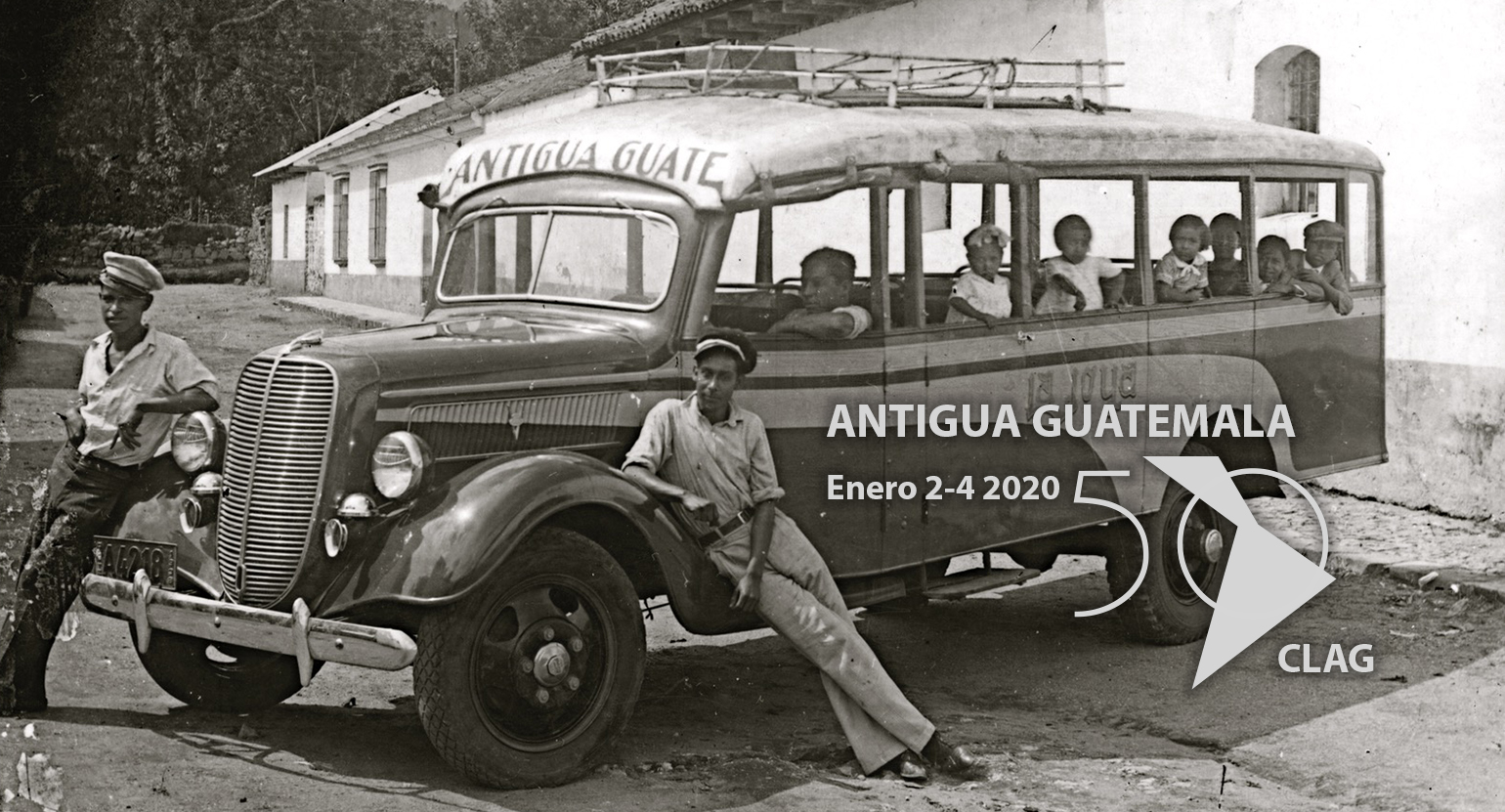36th Conference of Latin American Geographers
Antigua Guatemala, January 2-4, 2020
We are excited to announce that CLAG’s 50th anniversary meeting will take place in Antigua, Guatemala January 2-4, 2020. Antigua was declared a UNESCO World Heritage Site, thereby providing a unique, historical setting for this important meeting. The meeting will return to the same location as the 2004 CLAG gathering, the Casa Santo Domingo, formerly the Convent of Santo Domingo, which was once one of the largest in Central America. More information will be coming soon regarding rooms, sessions, field trips, etc. Field trips will take place immediately following the meeting, and will be announced in the coming months through the CLAG listserve and conference web page. Please mark your calendars now.
Michael Steinberg
Matthew Taylor
Conference Accommodations at the Casa Santa Domingo
http://bit.ly/CLAGS-50TH-ANNIVERSARY-MEETING-ANTIGUA-GUATEMALA
The rooms have been blocked from the 2nd to the 5thof January. The Conference will begin on the evening of the 2nd with a welcome cocktail and socializing (as well as registration). Sessions will take place on the 3rdand 4th. The final dinner and “clausura” will take place on the evening of the 4th of January. If you would like to stay longer, you will have to book through the normal Santo Domingo reservation system and at their usual rates. Thank you all for your patience.
NOTE: the Santo Domingo system says “1st to 5th” on the welcome page, but then gives the 2nd to 5thon the Calendar. This is an error on their front.
Guatemala 2020 - Conference Registration
Conference registration is now open for Antigua 2020! Please register by October 20.
1. CLAG 2020 Antigua, Guatemala Registration is now possible: register for CLAG 2020
Please register byOctober 20 to receive lower registration rates. After October 20, rates will increase.
Paper and Poster Abstract submission open for Antigua 2020!
Conference abstract submission is now open for Antigua 2020! Please submit abstracts by October 20
- Please submit abstracts to m.j.taylor@du.edu
- In the subject line of the email please put “your name: CLAG 2020 ABSTRACT” followed by the word “poster or paper” – choose one depending on your intended presentation type)
- In the body of the email please include your abstract. Please follow the example here from a previous CLAG conference.
If you want to organize a session, please use the CLAG listserve to make calls for papers. Once you have a complete session (five papers each, or four papers and an discussant) please e-mail me at m.j.taylor@du.edu with the session title and a list of the participants. Encourage your session participants to submit their abstracts as instructed here.
Group excursions after the conference are currently being organized. Please check the field trips page or e-mail Matthew Taylor m.j.taylor@du.edu if you would like to organize a field trip.
Many thanks to Robin McKinley for the excellent photos of Antigua. See more of her work at https://rmmckinley.myportfolio.com/. We also thank Matthew Taylor for digging up the cool bus photo from the archives.
more information soon - más información pronto - mais informações em breve










